Necessary Always Active
Necessary cookies are required to enable the basic features of this site, such as providing secure log-in or adjusting your consent preferences. These cookies do not store any personally identifiable data.
|
||||||
|
||||||
|
||||||
|

Financial management software takes the hassle out of bookkeeping, helping you stay organized, save time, and make smarter financial decisions. The right software can make a huge difference in managing your business’s money, from tracking expenses and generating invoices to handling payroll and preparing for tax season.
This article will examine the top 10 financial management software for small and medium businesses. We’ve chosen the tools discussed here based on their ease of use, features, and how well they fit the needs of companies like yours.
So, if you’re looking to simplify your bookkeeping, move from traditional to digital accounting, and get a better handle on your finances.
Finance management involves planning and controlling financial resources and activities to achieve an organization’s financial goals. It includes budgeting, tracking income and expenses, managing cash flow, and making strategic financial decisions that improve revenue and profits.
Financial management also ensures that companies are making strategic financial decisions that improve revenue and profits by:
To simplify finance management, companies need financial management software to automate the process, reduce errors, avoid costly mistakes, and gain real-time insights into financial operations.
Choosing the right financial management software for your small business can feel overwhelming. But if you know what to look for, you can make the decision much easier.
First and foremost, choose user-friendly software. You don’t need to be a financial expert to use it, so look for a tool with a simple, intuitive interface that won’t require hours of training to master.
The second key feature to consider is scalability. Your business might be small now, but you want software that can grow with you. Ensure it can handle more clients, employees, or transactions as your business expands.
Third, integration is also essential—look for software that can integrate with the other tools you already use, like your CRM or payroll system. Since accounting firms are highly vulnerable to cybersecurity threats, any tool that integrates with your systems should have the highest security standards.
Fourth, consider the specific features your business needs. Besides robust invoicing options such as automated expense tracking or real-time financial reporting, you should also consider AI capabilities. Adopting AI might seem impossible for a small business, but starting small is a crucial step to embracing AI in your business. So start small by using AI-powered financial software.
Lastly, don’t forget about customer support. Good support can be a lifesaver when you run into issues.
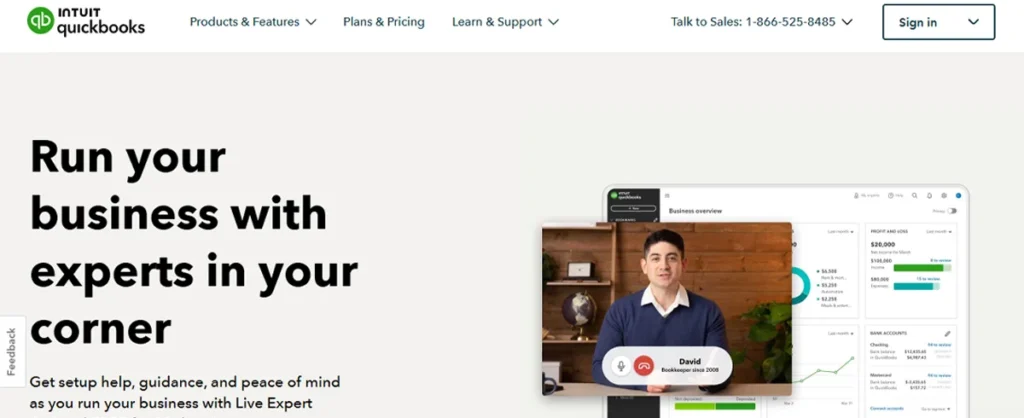
QuickBooks Online is a popular financial management software for small businesses. It is a cloud-based solution that covers everything from tracking expenses and invoices to managing payroll.
It is one of the most comprehensive financial solutions available for this market. The platform offers a variety of features, such as accounts payable, receivable, and invoicing. There is a payroll module for businesses with employees, and a time-tracking module is also available for those billing clients by the hour. If you’re using IoT to enhance processes like inventory management, you’ll also find QuickBooks’ inventory management tool handy.
One of the best things about QuickBooks is how it works effortlessly with other tools. For example, it can connect with PayPal, Square, and eCommerce platforms like Shopify and Woocommerce, allowing you to manage your income and expenses in one place. QuickBooks also integrates with FreshBooks for time tracking. Furthermore, it makes it easy for multiple users to collaborate while keeping sensitive financial information safe.
Whether you have a small team or need something more robust, you can scale your online business with QuickBooks Online.
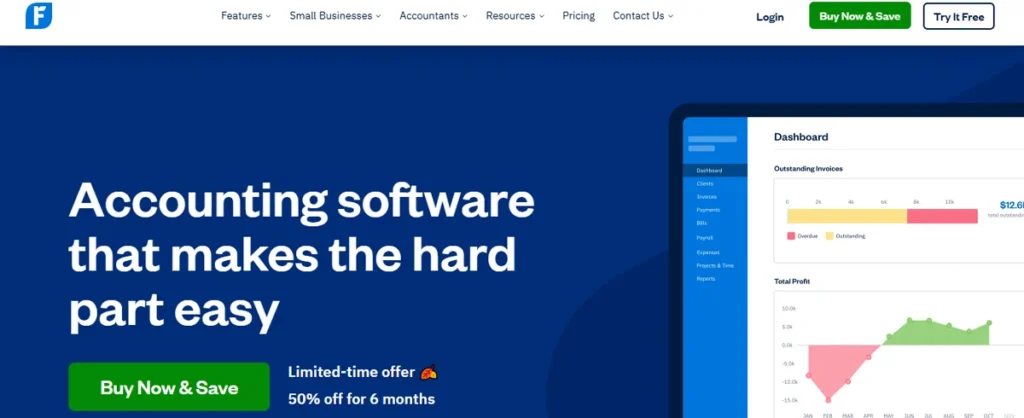
FreshBooks is an intuitive cloud-based financial management software designed specifically for small businesses. It simplifies tracking expenses, organizing financial data, and generating reports. FreshBooks also includes features for managing projects and sending professional invoices, helping companies maintain a steady revenue stream while on the go. This financial software solution automates many bookkeeping tasks, saving time on manual processes.
If your business deals with physical products, FreshBooks’ inventory management feature will help you track stock levels, set reorder alerts, and create purchase orders.
Additionally, FreshBooks generates important financial reports like profit and loss statements, balance sheets, and cash flow reports, so you always know where your business stands financially and can make better decisions.
FreshBooks is particularly handy for freelancers and service-based businesses. It makes it easy for such individuals to track time, manage expenses, and send professional invoices. Plus, FreshBooks automates many nitty-gritty bookkeeping tasks, saving you time and hassle. If you are often on the go, you will appreciate its accessibility from any device with an internet connection.
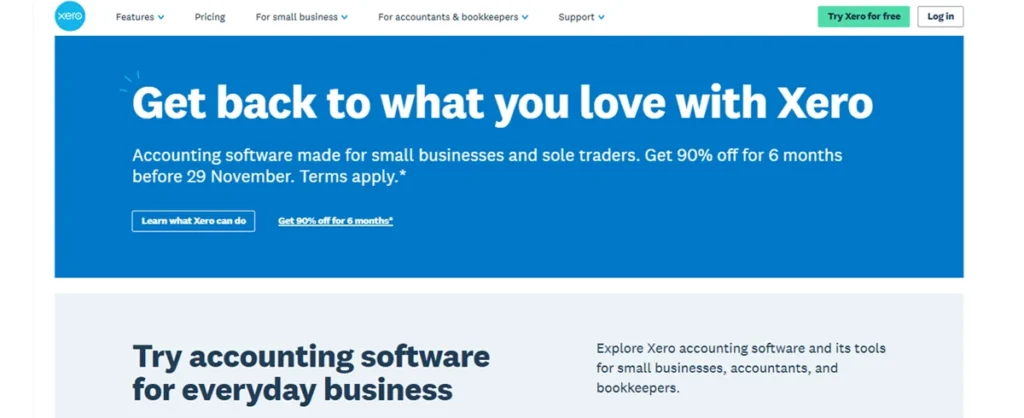
Xero offers a full suite of accounting tools perfect for small businesses looking for something comprehensive yet easy to use.
It enables businesses to track income and expenses and provides real-time updates to keep owners and accountants informed of financial changes as they happen. Xero supports multi-device access, ensuring your accounting data is always within reach.
However, it may be less cost-effective than other financial management software tools due to the limited availability of free add-ons despite its competitive pricing.
While it may not be the cheapest financial tool, Xero’s emphasis on real-time reporting and ease of access from multiple devices makes it a solid choice for those who value up-to-date financial insights.
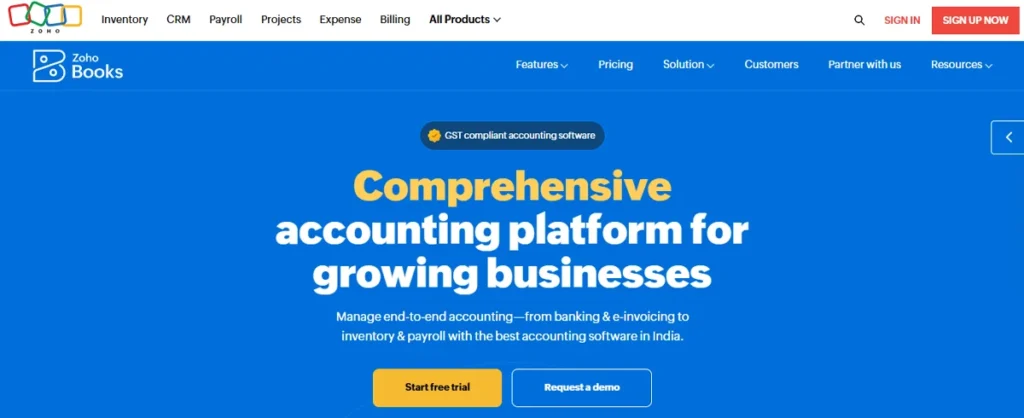
Zoho Books is a financial management software solution that helps businesses manage accounts payable, billing, and invoicing. It enables users to monitor multiple bank accounts, credit cards, and bills and integrates with other accounting platforms like QuickBooks Online and Xero. This integration feature reduces the need for duplicate data entry, making it a time-saving for accounting professionals managing multiple clients.
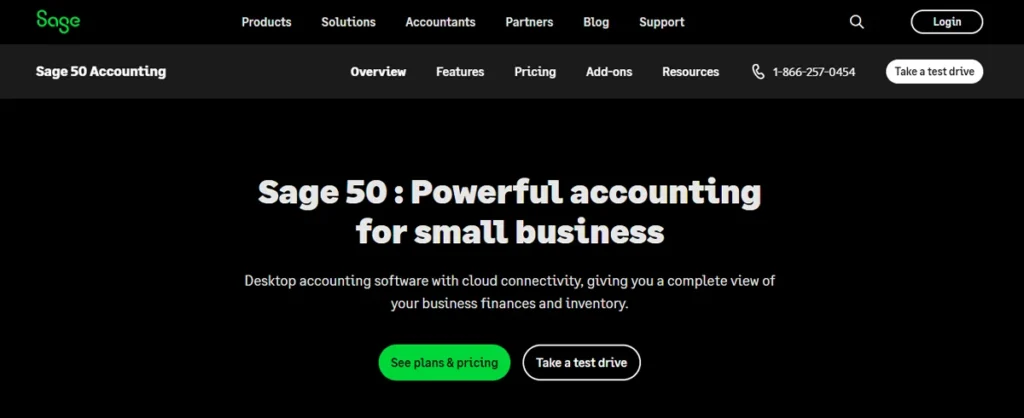
Sage 50 is security-first software, which is a strong selling point. Small businesses lack IT infrastructure management best practices, making them vulnerable to cyberattacks.
Sage 50, previously known as Peachtree, has long been a trusted accounting software for small businesses. It’s a tool for Pros.
It offers comprehensive features and integrates seamlessly with QuickBooks. Auto entry, one of Sage 50’s top features, lets you create invoices directly from sales orders, saving time by preventing repetitive data entry.
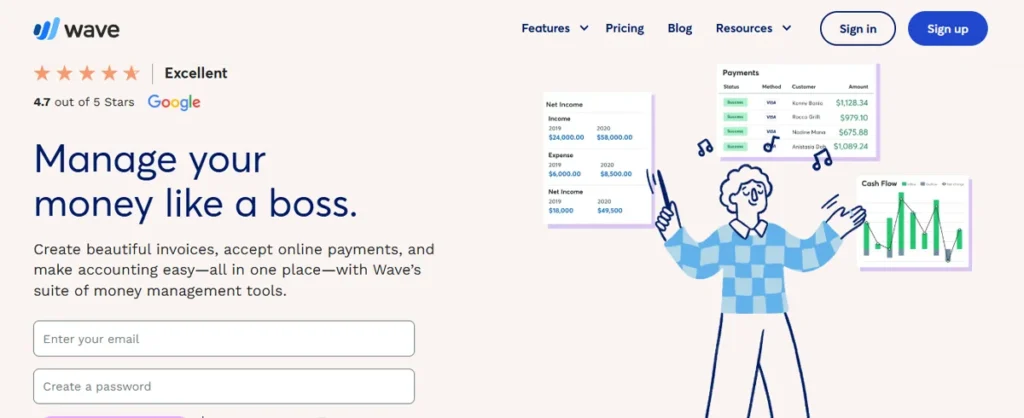
If you are on a tight budget, try Wave Accounting. It is a free accounting tool that offers premium features—like financial reports and automated payment processing—typically found in paid software.
It generates financial reports like balance sheets and income statements, which you can download as PDFs or Excel files. By automating payment processing, Wave ensures your bank balances are updated with each transaction, making work easier, especially during tax season preparation.
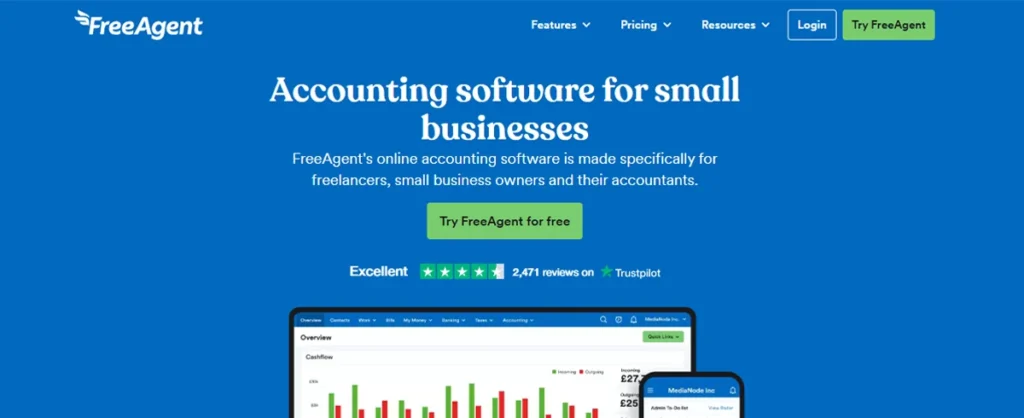
FreeAgent is perfect for freelancers and small businesses that need a simple but effective financial management software.
It supports recurring invoices, which it sends automatically. Once linked to a bank account, it automates transactions, reducing daily administrative tasks. The software is user-friendly and takes the hassle out of day-to-day bookkeeping tasks.

Finom is a newer player in small business accounting but is quickly gaining traction. It is handy for freelancers and small businesses looking for an all-in-one solution.
With its user-friendly interface, e-invoicing, accounting integrations, and automation features, Finom aims to enhance your fiscal management experience.
Finom’s invoicing features are top-notch. It allows you to create, send, and track invoices easily. It also integrates with your bank and other financial tools, making it a great option to keep things simple and streamlined.
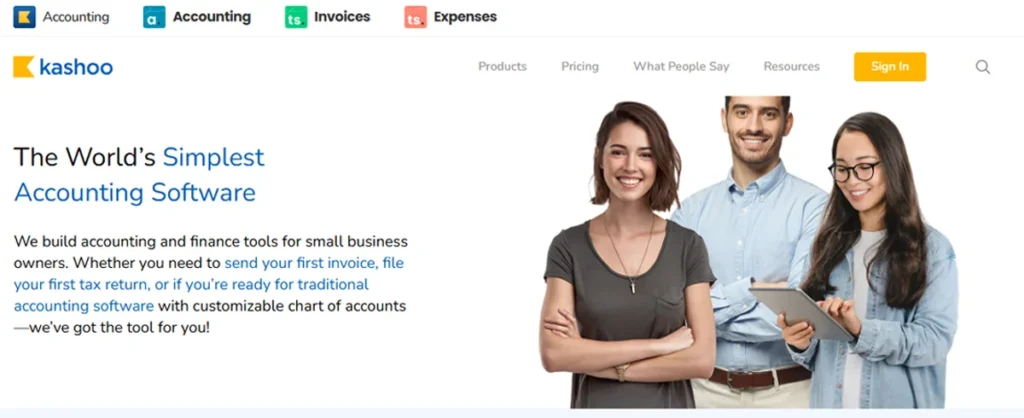
Kashoo is a straightforward and practical financial management software designed for business owners who value simplicity. It is a clean, easy-to-navigate platform that focuses on the essentials, making it great for filing your first invoice or using accounting software for the first time.
Kashoo offers two packages: truly small accounting for small businesses and Kashoo, perfect for advanced businesses and individuals.
In addition to handling small business accounting needs like income and expense tracking, invoicing, and tax preparation for small businesses, it also reduces manual data entry, enhancing accounting accuracy. Kashoo also simplifies accounting and fiscal management for advanced businesses with more accounting tasks.
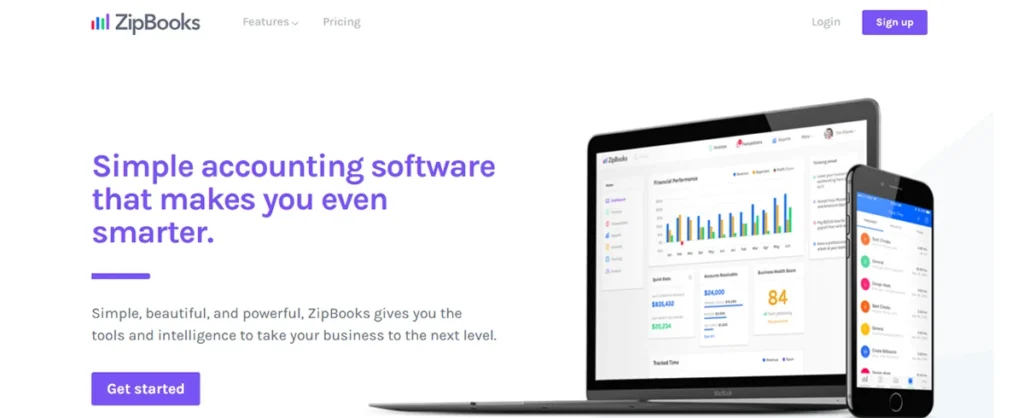
ZipBooks is a handy tool for managing the key financial aspects of your business. It allows you to manage accounting tasks like tracking accounts receivable, automatically categorizing transactions, and reconciling your bank accounts without hassle.
Expense management with ZipBooks is simple, as the software allows you to manage your billing needs by creating custom invoices, setting up recurring payments, recording and categorizing expenses, monitoring clients’ payment history, saving receipts digitally, and managing your vendors.
With the intelligence feature, you get insightful tools like a Business Health Score and Smart recommendations to help you make informed decisions and keep your business running smoothly.
The best financial management software is one that fits your business needs and budget. Whether you are just starting or looking to upgrade your current system, investing in the right bookkeeping tools can help you stay organized, save time, and help your business thrive.
As your business grows, having a reliable accounting system in place will be invaluable, providing the support you need to succeed in a competitive environment. The right accounting software can help you automate routine tasks, improve cash flow management, and offer real-time insights into financial health.
Sign up to receive our newsletter featuring the latest tech trends, in-depth articles, and exclusive insights. Stay ahead of the curve!